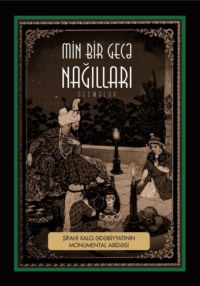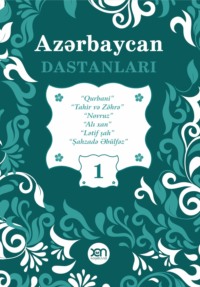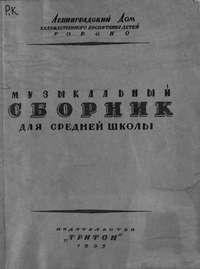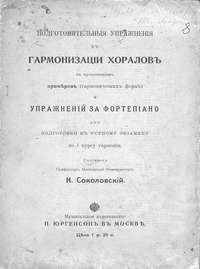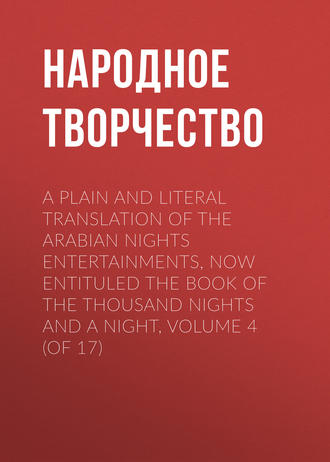 полная версия
полная версияA plain and literal translation of the Arabian nights entertainments, now entituled The Book of the Thousand Nights and a Night, Volume 4 (of 17)
373
Although the Arab’s ideal of beauty, as has been seen and said, corresponds with ours, the Egyptians (Modern) the Maroccans and other negrofied races like “walking tun-butts” as Clapperton called his amorous widow.
374
Arab. “Khayzar” or “Khayzarán” the rattan-palm. Those who have seen this most graceful “palmijuncus” in its native forest will recognise the neatness of the simile.
375
This is the popular idea of a bushy “veil of nature” in women: it is always removed by depilatories and vellication. When Bilkis Queen of Sheba discovered her legs by lifting her robe (Koran xxvii.), Solomon was minded to marry her, but would not do so till the devils had by a depilatory removed the hair. The popular preparation (called Núrah) consists of quicklime 7 parts, and Zirník or orpiment, 3 parts: it is applied in the Hammam to a perspiring skin, and it must be washed off immediately the hair is loosened or it burns and discolours. The rest of the body-pile (Sha’arat opp. to Sha’ar = hair) is eradicated by applying a mixture of boiled honey with turpentine or other gum, and rolling it with the hand till the hair comes off. Men I have said remove the pubes by shaving, and pluck the hair of the armpits, one of the vestages of pre-Adamite man. A good depilatory is still a desideratum, the best perfumers of London and Paris have none which they can recommend. The reason is plain: the hair-bulb can be eradicated only by destroying the skin.
376
Koran, ii. 64: referring to the heifer which the Jews were ordered to sacrifice.
377
Arab. “kallá,” a Koranic term possibly from Kull (all) and lá (not) = prorsus non – altogether not!
378
“Habáb” or “Habá,” the fine particles of dust, which we call motes. The Cossid (Arab. Kásid) is the Anglo-Indian term for a running courier (mostly under Government), the Persian “Shátir” and the Guebre Rávand.
379
Arab. “Samhari” a very long thin lance so called after Samhar, the maker, or the place of making. See vol. ii. p. 1. It is supposed to cast, when planted in the ground, a longer shadow in proportion to its height, than any other thing of the kind.
380
Arab. “Suláfah;” properly ptisane which flows from the grapes before pressure. The plur. “Sawálif” also means tresses of hair and past events: thus there is a “triple entendre.” And again “he” is used for “she.”
381
There is a pun in the last line, “Khálun (a mole) khallauni” (rid me), etc.
382
Of old Fustát, afterwards part of Southern Cairo, a proverbially miserable quarter, hence the saying, “They quoted Misr to Káhirah (Cairo), whereon Bab al-Luk rose with its grass,” in derision of nobodies who push themselves forward. Burckhardt, Prov. 276.
383
Its fruits are the heads of devils; a true Dantesque fancy. Koran, chapt. xvii. 62, “the tree cursed in the Koran” and in chapt. xxxvii, 60, “is this better entertainment, or the tree of Al-Zakkúm?” Commentators say that it is a thorn bearing a bitter almond which grows in the Tehamah and was therefore promoted to Hell.
384
Arab. “Lasm” (lathm) as opposed to Bausah or boseh (a buss) and Kublah (a kiss, generic).
385
Arab. “Jufún” (plur. of Jafn) which may mean eyebrows or eyelashes and only the context can determine which.
386
Very characteristic of Egyptian manners is the man who loves six girls equally well, who lends them, as it were, to the Caliph; and who takes back the goods as if in no wise damaged by the loan.
387
The moon is masculine possibly by connection with the Assyrian Lune-god “Sin”; but I can find no cause for the Sun (Shams) being feminine.
388
Arab. “Al-Amin,” a title of the Prophet. It is usually held that this proud name, “The honest man,” was applied by his fellow-citizens to Mohammed in early life; and that in his twenty-fifth year, when the Eighth Ka’abah was being built, it induced the tribes to make him their umpire concerning the distinction of placing in position the “Black Stone” which Gabriel had brought from Heaven to be set up as the starting-post for the seven circuitings. He distributed the honour amongst the clans and thus gave universal satisfaction. His Christian biographers mostly omit to record an anecdote which speaks so highly in Mohammed’s favour (Pilgrimage iii. 192.)
389
The idea is that Abu Nowas was a thought-reader – such being the prerogative of inspired poets in the East. His drunkenness and debauchery only added to his power. I have already noticed that “Allah strike thee dead” (Kátala-k Allah) is like our phrase, “Confound the fellow, how clever he is.”
390
Again said facetiously, “Devil take you!”
391
In all hot-damp countries it is necessary to clothe dogs, morning and evening especially: otherwise they soon die of rheumatism and loin disease.
392
= Beatrice. A fragment of these lines is in Night cccxv. See also Night dcclxxxi.
393
The Moslems borrowed the horrible idea of a “jealous God” from their kinsmen, the Jews. Every race creates its own Deity after the fashion of itself: Jehovah is distinctly a Hebrew; the Christian Theos is originally a Judæo-Greek and Allah a half-Badawi Arab. In this tale Allah, despotic and unjust, brings a generous and noble-minded man to beggary, simply because he fed his dogs off gold plate. Wisdom and morality have their infancy and youth: the great value of such tales as these is to show and enable us to measure man’s development.
394
In Trébutien (Lane ii. 501) the merchant says to ex-Dives, “Thou art wrong in charging Destiny with injustice. If thou art ignorant of the cause of thy ruin I will acquaint thee with it. Thou feddest the dogs in dishes of gold and leftest the poor to die of hunger.” A superstition, but intelligible.
395
Arab. “Sarráf” = a money-changer.
396
Arab. “Birkah,” a common feature in the landscapes of Lower Egypt; it is either a natural pool left by the overflow of the Nile; or, as in the text, a built-up tank, like the “Táláb” for which India is famous. Sundry of these Birkahs are or were in Cairo itself; and some are mentioned in The Nights.
397
This sneer at the “military” and the “police” might come from an English convict’s lips.
398
Lit. “The conquering King;” a dynastic title assumed by Saláh al-Dín (Saladin) and sundry of the Ayyúbi (Eyoubite) sovereigns of Egypt, whom I would call the “Soldans.”
399
“Káhirah” (i. e. City of Mars – the Planet) is our Cairo: Bulak is the port-suburb on the Nile, till 1858 wholly disjoined from the City; and Fostat is the outlier popularly called Old Cairo. The latter term is generally translated “town of leathern tents;” but in Arabic “fustát” is an abode of Sha’ar = hair, such as horse-hair, in fact any hair but “Wabar” = soft hair, as the camel’s. See Lane, Lex.
400
Arab. “Adl” = just: a legal witness to whose character there is no tangible objection – a prime consideration in Moslem law. Here “Adl” is evidently used ironically for a hypocritical rascal.
401
Lane (ii. 503) considers three thousand dinars (the figure in the Bres. Edit) “a more probable sum.” Possibly: but, I repeat, exaggeration is one of the many characteristics of The Nights.
402
Calc. Edit. “Kazír”: the word is generally written “Kazdír,” Sansk. Kastira, both probably from the Greek κασσιτέρος.
403
This would have passed for a peccadillo in the “good old days.” As late as 1840 the Arnaut soldiers used to “pot” any peasant who dared to ride (instead of walking) past their barracks. Life is cheap in hot countries.
404
Koran, xli. 46 – a passage expounding the doctrine of free will: “He who doth right, doth it to the advantage of his own soul; and he who doth evil, doth it against the same; for thy Lord,” etc.
405
Arab. “Suffah”; whence our Sofa. In Egypt it is a raised shelf generally of stone, about four feet high and headed with one or more arches. It is an elaborate variety of the simple “Ták” or niche, a mere hollow in the thickness of the wall. Both are used for such articles as basin, ewer and soap; coffee-cups, water-bottles, etc.
406
In Upper Egypt (Apollinopolis Parva) pronounced “Goos,” the Coptic Kos-Birbir, once an emporium of the Arabian trade.
407
This would appeal strongly to a pious Moslem.
408
i. e. “the father of a certain person”; here the merchant whose name may have been Abu’l Hasan, etc. The useful word (thingumbob, what d’ye call him, donchah, etc.) has been bodily transferred into Spanish and Portugese – Fulano. It is of old genealogy, found in the Heb. Fuluní which applies to a person only in Ruth iv. 1; but is constantly so employed by Rabbinic writers. The Greek use ὁ δεῖνα.
409
Lit. “by his (i. e. her) hand,” etc. Hence Lane (ii. 507) makes nonsense of the line.
410
Arab. “Badrah,” as has been said, is properly a weight of 10,000 dirhams or drachmas; but popularly used for largesse thrown to the people at festivals.
411
Arab. “Allaho A’alam”; (God knows!) here the popular phrase for our, “I know not;” when it would be rude to say bluntly “M’adri” = “don’t know.”
412
There is a picturesque Moslem idea that good deeds become incarnate and assume human shapes to cheer the doer in his grave, to greet him when he enters Paradise and so forth. It was borrowed from the highly imaginative faith of the Guebre, the Zoroastrian. On Chinavad or Chanyud-pul (Sirát), the Judgement bridge 37 rods (rasan) long, straight and 37 fathoms broad for the good, and crooked and narrow as sword-edge for the bad, a nymph-like form will appear to the virtuous and say, “I am the personification of thy good deeds!” In Hell there will issue from a fetid gale a gloomy figure with head like a minaret, red eyeballs, hooked nose, teeth like pillars, spear-like fangs, snaky locks etc., and when asked who he is he will reply, “I am the personification of thine evil acts!” (Dabistan i. 285.) The Hindus also personify everything.
413
Arab. “Banú Israíl;” applied to the Jews when theirs was the True Faith i. e. “before the coming of Jesus, the Messiah, whose mission completed that of Moses and made it obsolete (Matrúk) even as the mission of Jesus was completed and abrogated by that of Mohammed.” The term “Yahúd” = Jew is applied scornfully to the Chosen People after they rejected the Messiah, but as I have said “Israelite” is used on certain occasions, Jew on others.
414
Arab. “Kasa’ah,” a wooden bowl, a porringer; also applied to a saucer.
415
Arab. “Rasúl” = one sent, an angel, an “apostle;” not to be translated, as by the vulgar, “prophet.” Moreover Rasul is higher than Nabí (prophet), such as Abraham Isaac, etc., depositaries of Al-Islam, but with a succession restricted to their own families. Nabi-mursil (Prophet-apostle) is the highest of all, one sent with a book: of these are now only four, Moses, David, Jesus and Mohammed, the writings of the rest having perished. In Al-Islam also angels rank below men, being only intermediaries (= ἄγγελοι, nuncii, messengers) between the Creator and the Created. This knowledge once did me a good turn at Harar, not a safe place in those days (First Footsteps in East Africa, p. 349).
416
A doctor of law in the reign of Al-Maamun.
417
Here the exclamation is = D.V.; and it may be assumed generally to have that sense.
418
Arab. “Taylasán,” a turban worn hood-fashion by the “Khatib” or preacher. I have sketched it in my Pilgrimage and described it (iii. 315). Some Orientalists derive Taylasan from Atlas = satin, which is peculiarly inappropriate. The word is apparently barbarous and possibly Persian like Kalansuwah, the Dervish-cap. “Thou son of a Taylasán” = a barbarian (De Sacy, Chrest. Arab. ii. 269).
419
Arab. Kinyah vulg. “Kunyat” = patronymic or matronymic; a name beginning with “Abu” (father) or with “Umm” (mother). There are so few proper names in Al-Islam that such surnames, which, as will be seen, are of infinite variety, become necessary to distinguish individuals. Of these sobriquets I shall give specimens further on.
420
“Whoso seeth me in his sleep, seeth me truly; for Satan cannot assume my semblance,” said (or is said to have said) Mohammed. Hence the vision is true although it comes in early night and not before dawn. See Lane M. E., chapt. ix.
421
Arab. “Al-Maukab;” the day when the pilgrims march out of the city; it is a holiday for all, high and low.
422
“The Gate of Salutation;” at the S. Western corner of the Mosque where Mohammed is buried (Pilgrimage ii. 60 and plan). Here “Visitation” (Ziyárah) begins.
423
The tale is told by Al-Isháki in the reign of Al-Maamun.
424
The speaker in dreams is the Heb. “Waggid,” which the learned and angry Graetz (Geschichte, etc. vol. ix.) absurdly translates “Traum-souffleur.”
425
Tenth Abbaside. A.D. 849-861.
426
Arab. “Muwallad” (fem. “Muwalladah”); a rearling, a slave born in a Moslem land. The numbers may appear exaggerated, but even the petty King of Ashanti had, till the last war, 3333 “wives.”
427
The Under-prefect of Baghdad.
428
“Ja’afar,” our old Giaffar (which is painfully like “Gaffer,” i. e. good father) means either a rushing river or a rivulet.
429
A regular Fellah’s name also that of a village (Pilgrimage i. 43) where a pleasant story is told about one Haykal.
430
The “Mountain” means the rocky and uncultivated ground South of Cairo; such as Jabal al-Ahmar and the geological sea-coast flanked by the old Cairo-Suez highway.
431
A popular phrase = our “sharp as a razor.”
432
i. e. are men so few; a favourite Persian phrase.
433
She is a woman of rank who would cause him to be assassinated.
434
This is not Al-Hakim bi´ Amri´llah the famous or infamous founder of the Druze (Durúz) faith and held by them to be, not an incarnation of the Godhead, but the Godhead itself in propriâ personâ, who reigned A.D. 926-1021: our Hakim is the orthodox Abbaside Caliph of Egypt who dated from two centuries after him (A.D. 1261). Had the former been meant, it would have thrown back this part of The Nights to an earlier date than is generally accepted. But in a place still to come I shall again treat of the subject.
435
For an account of a similar kind which was told to me during the last few years see “Midian Revisited,” i. 15. These hiding-places are innumerable in lands of venerable antiquity like Egypt; and, if there were any contrivance for detecting hidden treasure, it would make the discoverer many times a millionaire.
436
i. e. it had been given to him or his in writing, like the book left to the old woman before quoted in “Midian,” etc.
437
Arab. “Kird” (pron. in Egypt “Gird”). It is usually the hideous Abyssinian cynocephalus which is tamed by the ape-leader popularly called Kuraydati (Lane, M. E., chapt. xx.). The beast has a natural penchant for women; I heard of one which attempted to rape a girl in the public street and was prevented only by a sentinel’s bayonet. They are powerful animals and bite like greyhounds.
438
Easterns, attribute many complaints (such as toothache) to worms, visible as well as microscopic; which may be held a fair prolepsis of the “germ-theory” the bacterium, the bacillus, the microbe. Nymphomania, the disease alluded to in these two tales is always attributed to worms in the vagina.
439
Bestiality, very rare in Arabia is fatally common amongst those most debauched of debauched races, the Egyptian proper and the Sindis. Hence the Pentateuch, whose object was to breed a larger population of fighting men, made death the penalty for lying with a beast (Deut. xxvii. 21). C. S. Sonnini (Travels, English translation, p. 663) gives a curious account of Fellah lewdness. “The female crocodile during congress is turned upon her back (?) and cannot rise without difficulty. Will it be believed that there are men who take advantage of the helpless situation of the female, drive off the male, and supplant him in this frightful intercourse? Horrible embraces, the knowledge of which was wanting to complete the disgusting history of human perversity!” The French traveller forgets to add the superstitious explanation of this congress which is the sovereignest charm for rising to rank and riches. The Ajáib al-Hind tells a tale (chapt. xxxix.) of a certain Mohammed bin Bullishad who had issue by a she-ape: the young ones were hairless of body and wore quasi-human faces; and the father’s sight had become dim by his bestial practice.


